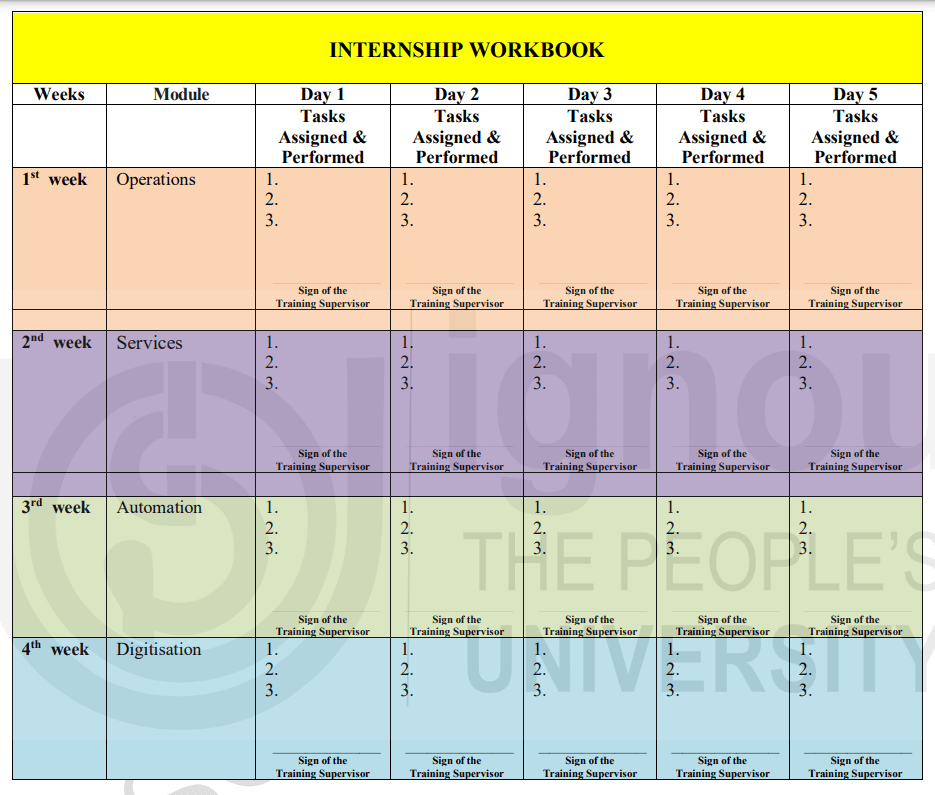
BLII 230 Internship is a crucial step in any educational journey, especially within the Bachelor of Library and Information Science (BLIS) program at the Indira Gandhi National Open University (IGNOU). This internship component is essential, providing students with practical experience and the opportunity to apply theoretical knowledge in real-world settings. This guide will walk you through the process of writing your BLII 230 Internship report, ensuring you build trust and excitement throughout the experience.
Understanding the Ignou BLII 230 Internship
The BLII 230 Internship is designed to offer BLIS students hands-on experience in various library and information centers. This internship not only helps students to understand the functioning of libraries but also enhances their practical skills. By participating in this internship, students get a chance to:
- Apply theoretical knowledge in a practical setting.
- Gain insights into library operations.
- Develop professional skills.
- Network with professionals in the field.
Preparing for the Ignou BLIS Internship
Before you start your internship, it’s essential to be well-prepared. Here are some steps to help you get ready:
1. Understand the Objectives
Familiarize yourself with the objectives of the BLII 230 Internship. Knowing what is expected will help you focus on key areas and make the most of your experience.
2. Select the Right Library
Choose a library or information center that aligns with your interests and career goals. Ensure it provides a variety of activities and learning opportunities that will enrich your internship experience.
3. Communicate with Your Supervisor
Establish clear communication with your internship supervisor. Discuss your goals, expectations, and the tasks you will be performing. This will help you stay on track and meet the internship objectives.
4. Create a Schedule
Plan your internship schedule in advance. Allocate time for different tasks and ensure you cover all necessary areas. A well-organized schedule will help you stay focused and productive.
During the BLIS Internship
While on the internship, it’s important to stay engaged and proactive. Here are some tips to help you succeed:
1. Be Observant and Take Notes
Observe the daily operations of the library and take detailed notes. Pay attention to the processes, technologies, and methods used. These notes will be invaluable when writing your internship report.
2. Participate Actively
Get involved in various activities and tasks. Whether it’s cataloging, assisting patrons, or managing digital resources, active participation will enhance your learning experience.
3. Seek Feedback
Regularly seek feedback from your supervisor and colleagues. Constructive feedback will help you improve and understand your strengths and areas for development.
4. Reflect on Your Experience
Take time to reflect on your experiences daily. Reflecting will help you understand what you’ve learned and how it applies to your future career.
Writing the BLII 230 Internship Report

Writing the internship report is a critical part of the BLII 230 Internship. This report will showcase your learning and experiences, providing a comprehensive overview of your internship journey. Here’s a structured approach to writing your report:
1. Title Page
Include the title of your report, your name, enrollment number, the name of the internship library, and the period of the internship.
2. Acknowledgments
Thank those who have supported and guided you during your internship. This could include your supervisor, colleagues, and academic mentors.
3. Table of Contents
Provide a clear table of contents to help readers navigate your report.
4. Introduction
Introduce the purpose of the internship, the library where you interned, and the main objectives you aimed to achieve. Keep it concise and engaging.
5. Description of the Library
Describe the library or information center where you completed your internship. Include details about its size, collections, services, and user demographics.
6. Internship Activities
Detail the activities you performed during your internship. Divide this section into subheadings based on different tasks or areas you worked on, such as:
a. Cataloging and Classification
Explain your involvement in cataloging and classification. Describe the systems and tools used, and highlight any significant learnings or challenges.
b. User Services
Discuss your experience in user services. Include interactions with patrons, reference services, and any programs or workshops you assisted with.
c. Digital Resource Management
Detail your work with digital resources. This could include managing databases, e-resources, or digital archives.
d. Administrative Tasks
Include any administrative tasks you performed, such as managing records, organizing events, or assisting with library management.
7. Challenges and Solutions
Discuss any challenges you faced during your internship and the solutions you implemented. This demonstrates your problem-solving skills and adaptability.
8. Learning Outcomes
Highlight the key learnings from your internship. Reflect on how the experience has contributed to your professional growth and how it aligns with your career goals.
9. Conclusion
Summarize your internship experience and reiterate its significance in your academic and professional journey. Mention any future steps you plan to take as a result of this internship.
10. Appendices
Include any additional materials, such as charts, graphs, or documents, that support your report.
11. References
Cite any sources you referred to while writing your report. Follow the appropriate citation style as per your academic guidelines.
Tips for Writing an Impressive IGNOU BLII 230 Internship Report
1. Be Clear and Concise
Write clearly and concisely. Avoid unnecessary jargon and focus on conveying your experiences and learnings effectively.
2. Use Professional Language
Maintain a professional tone throughout your report. This will reflect your seriousness and dedication towards the internship.
3. Include Real-Life Examples
Use real-life examples to illustrate your points. This makes your report more relatable and engaging.
4. Proofread Thoroughly
Proofread your report multiple times to eliminate any errors. A well-polished report will leave a positive impression on your readers.
Buy BLIS Internship from Us
If you’re looking for expert assistance in completing your BLII 230 Internship report, consider purchasing our comprehensive BLIS internship package. Our service provides customized reports, tailored to your specific internship experience, ensuring that you meet all academic requirements with excellence. Trust our professional team to help you succeed in your BLIS journey, saving you time and effort while delivering top-quality content.
Conclusion
The BLII 230 Internship of Ignou is a valuable opportunity for BLIS students to gain practical experience and develop professional skills. By preparing well, staying proactive during the internship, and writing a comprehensive report, you can make the most of this experience. Remember, your internship report is not just a requirement but a reflection of your journey and growth in the field of library and information.
